
👊"Getting started is the hardest part"
Thanks to Anders Forslund's electric aircraft, half a billion tonnes less of carbon dioxide will be emitted by 2050. Meet the aviation enthusiast and climate entrepreneur who wants to fundamentally change future transportation.
Share this story!
We want a green future to come faster. That's why we follow green impact startups from the garage to Nasdaq and offer you the opportunity to find out what is going on behind the scenes and help companies succeed.
If you become a Warp Premium Supporter, you will be invited to an online meeting with Heart Aerospace's CEO, Anders Forslund, and visit their hangar.
Right now, we have a special offer: One-year Premium Supporter for $25 for the first year. (Renews annually at regular price of $100/year.)
The offer is valid until 6 February.
Before Christmas, an electric aircraft from Heart Aerospace took off at Säve Airport in Gothenburg. The flight lasted four and a half minutes, and applause broke out on the landing. A milestone has been passed in the development of Swedish electric aviation.
It is so far just a model in scale 1: 5 of the slightly larger plane ES-19, but it still gives a premonition of what is going on. As early as 2024, the full-scale model of the Heart Aerospace 19-seat electric aircraft will be in the air, and in 2026 the first flights in scheduled commercial traffic will be up and running.
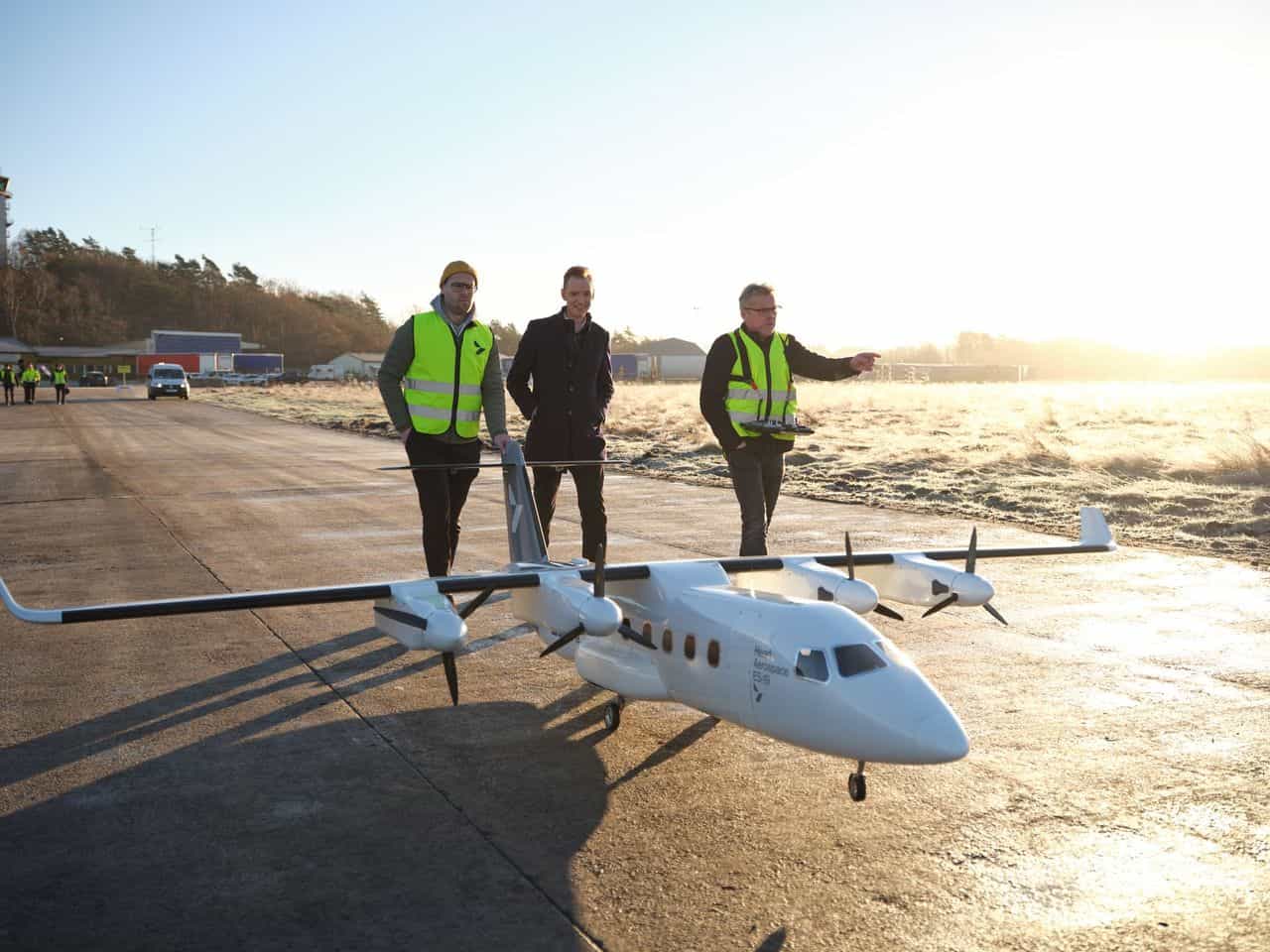
Hundreds of aircraft already ordered
The airline BRA, Braathens Regional Airlines, is an avid proponent of Heart Aerospace and announced this summer that the company would fly to and from Gotland with electric flights. Three years ago, BRA and SAS wrote a letter of intent with Heart Aerospace. However, nothing is agreed upon between the companies, formally speaking.
Yet, the airlines United Airlines and Mesa have placed an order for 200 electric aircraft with Heart Aerospace, with another 100 aircraft. In combination with an investment of SEK 300 million from United Airlines, Mesa, Bill Gates' climate fund Breakthrough Energy Ventures, Lowercarbon Capital, and Swedish EQT, this has paved the way for an even faster development of the ES-19.
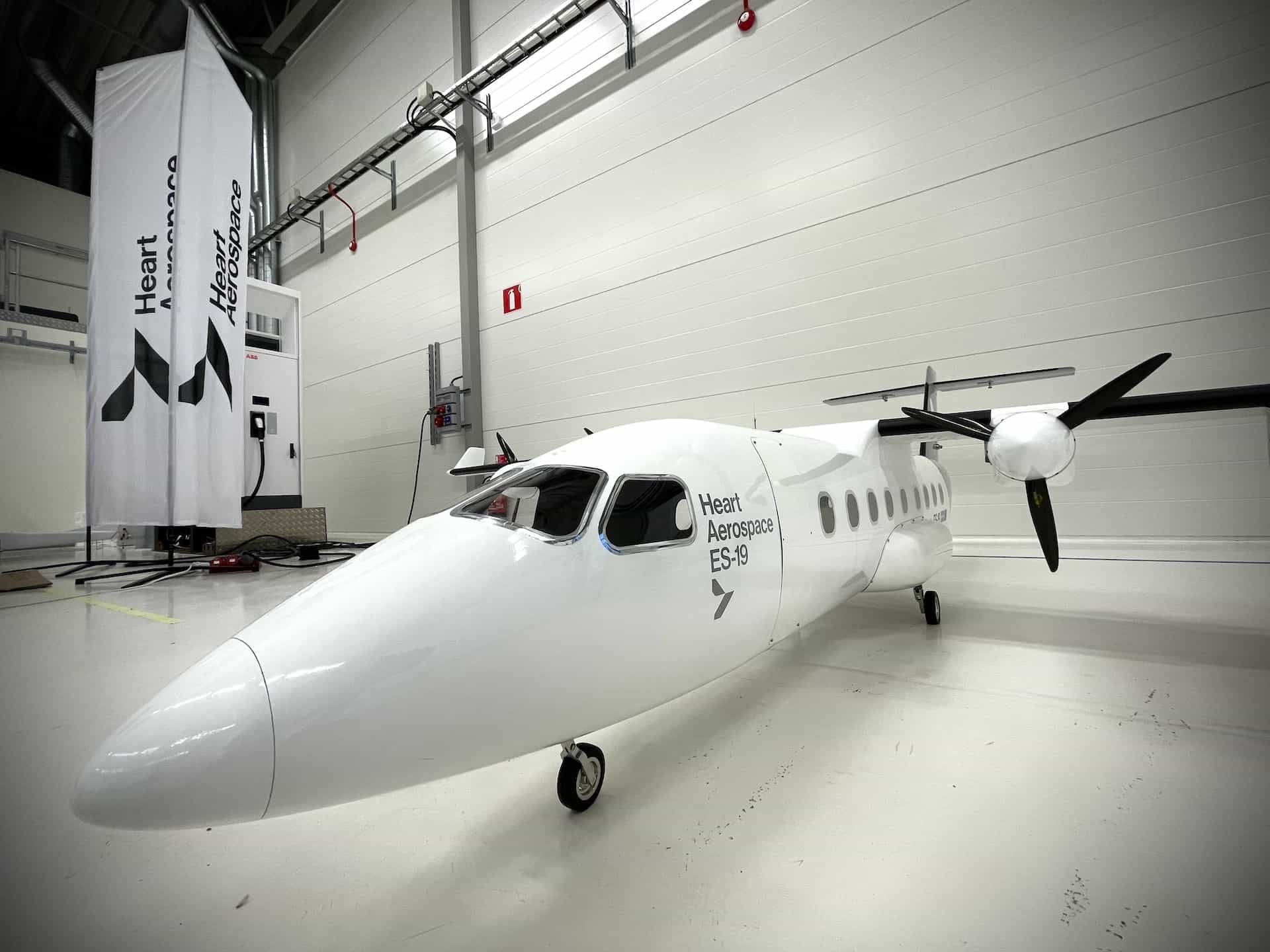
"I have probably not really understood yet how big this is. Or, on an intellectual level, I grasp it, but I have not been able to internalize it properly yet. It's somewhat inconceivable", says Anders Forslund, CEO of Heart Aerospace, to Warp News.
From two to 100 employees
When Heart Aerospace started in 2018, the company consisted of Anders Forslund and his partner Klara Andreasson. Last summer, the company had grown to 40 people, and today Heart Aerospace has around 100 employees. The plan for the coming year is to expand the company to 300-400 employees. The head office and production facility are located in the hangars just east of one of the older and closed runways at Säve Airport.
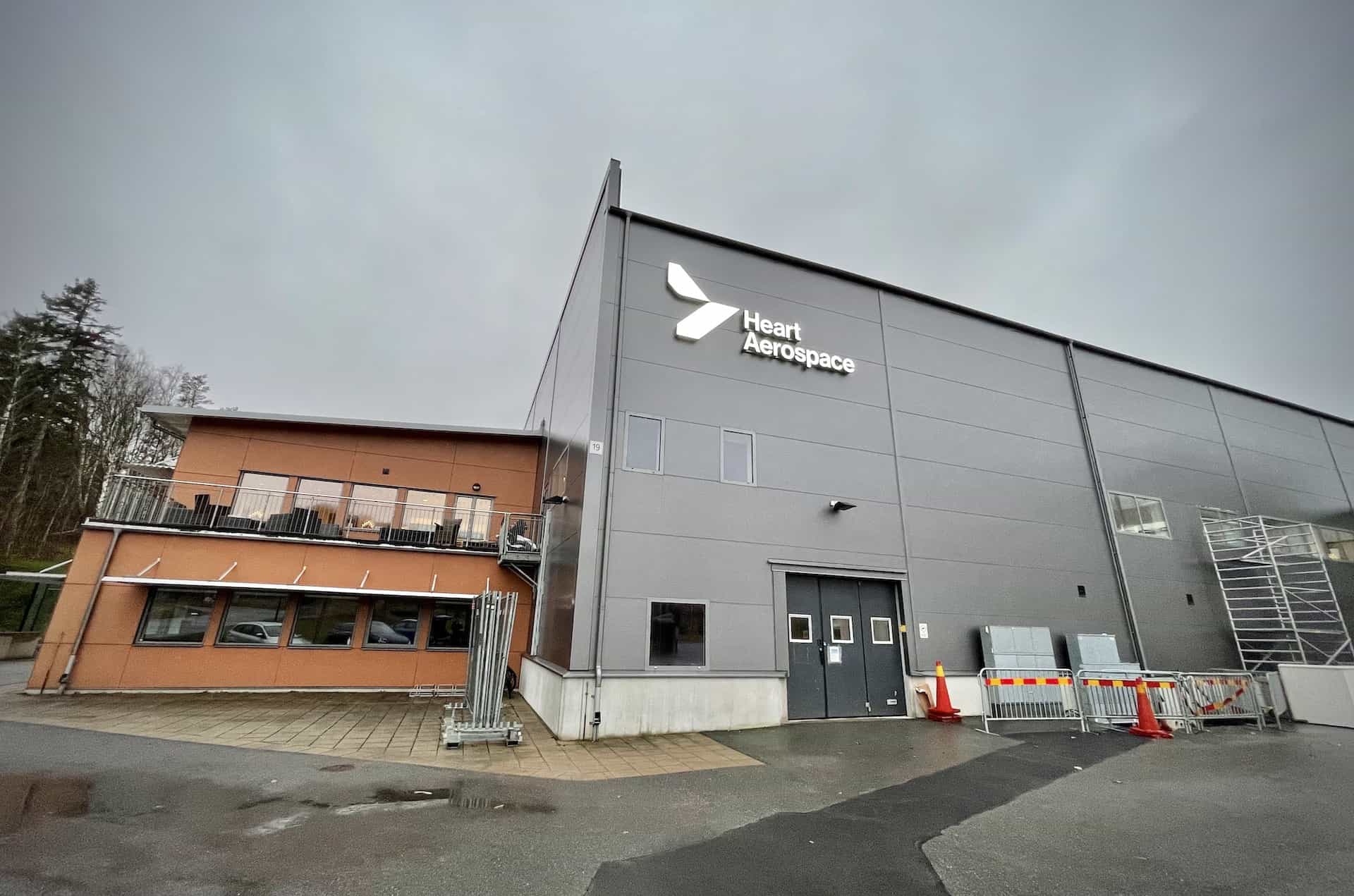
In one of the hangars you find the model aircraft with its wingspan of 4.6 meters. There is also a part of a demonstration cabin where we are allowed to test the airplane seats.
Once mass production starts, the Spanish company Aernnova will manufacture the fuselage, wings, and tail section. A couple of Aernnova's engineers are already on-site at Heart Aerospace to participate in research.
Leading nation in electric aviation
At the same time, the development of Swedish electric aviation is more than Heart Aerospace. The Government wants Sweden to become a leading nation in electric aviation and has recently commissioned the Swedish Transport Administration to analyze and submit proposals on how support for research and innovation in electric aviation can be developed, coordinated, and organized.
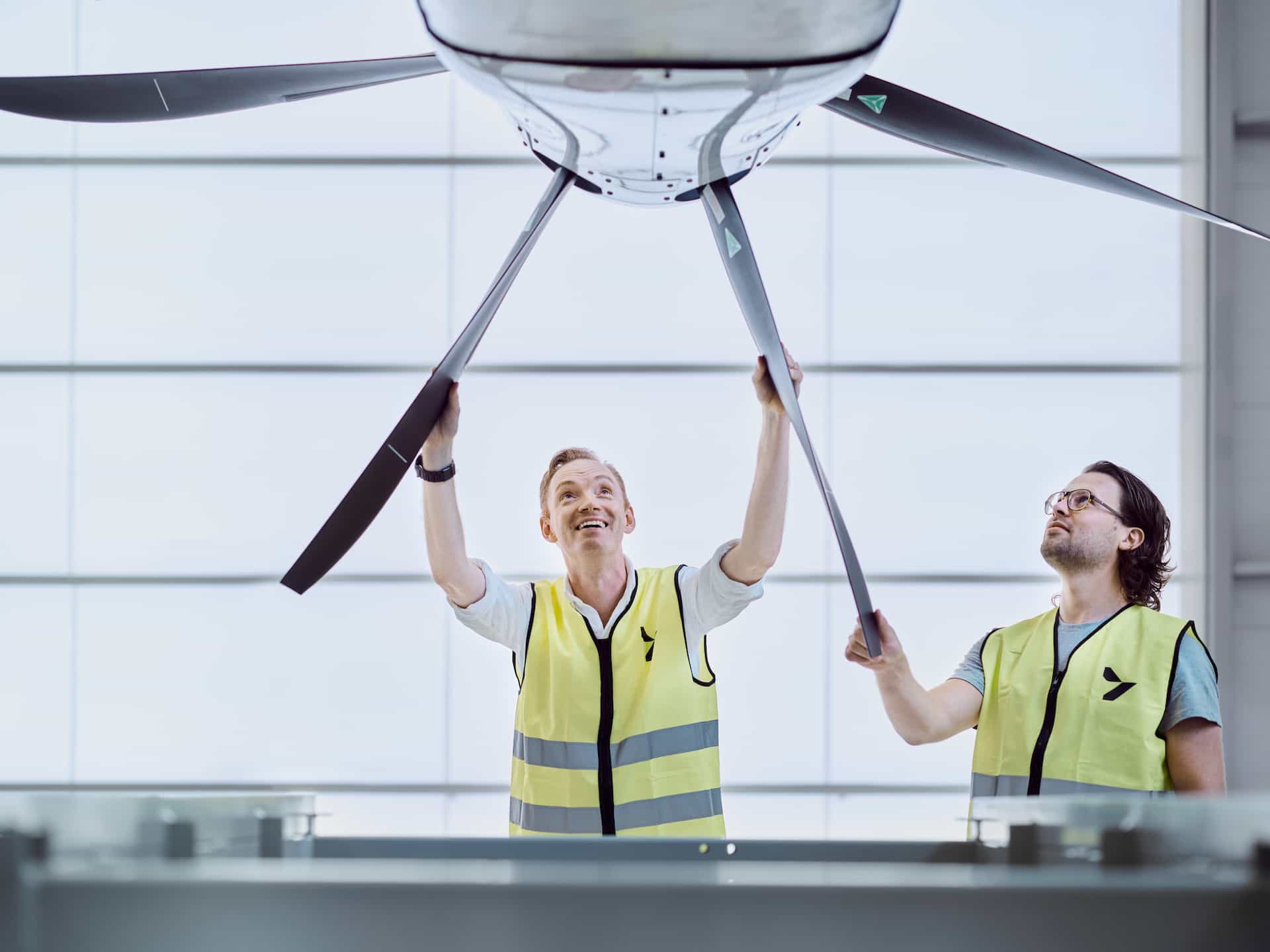
"Aviation is so scalable, and investments in electric aviation drive development forward for the whole world. I'm not against high-speed trains, but it's about big money to buy land, pay construction companies to dig up the ground and th, en pour cement. Aircraft, on the other hand, yes, if you have an efficient production apparatus, you can print out as many as you like", says Anders Forslund.
Bridging today's infrastructure with the future
The key to success for Heart Aerospace is not to "reinvent the wheel," says Anders Forslund. Instead, the company is investing in an existing product - the aircraft - that can take off and land at existing airports. The only difference, at first, is that the plane runs on electricity.
"My background is in product development, and I am driven by building both an aircraft as well as a knowledge bank and production apparatus for the aircraft of the future. The big challenge lies in creating new working methods to develop future technology faster, cheaper, and more efficient", he says.
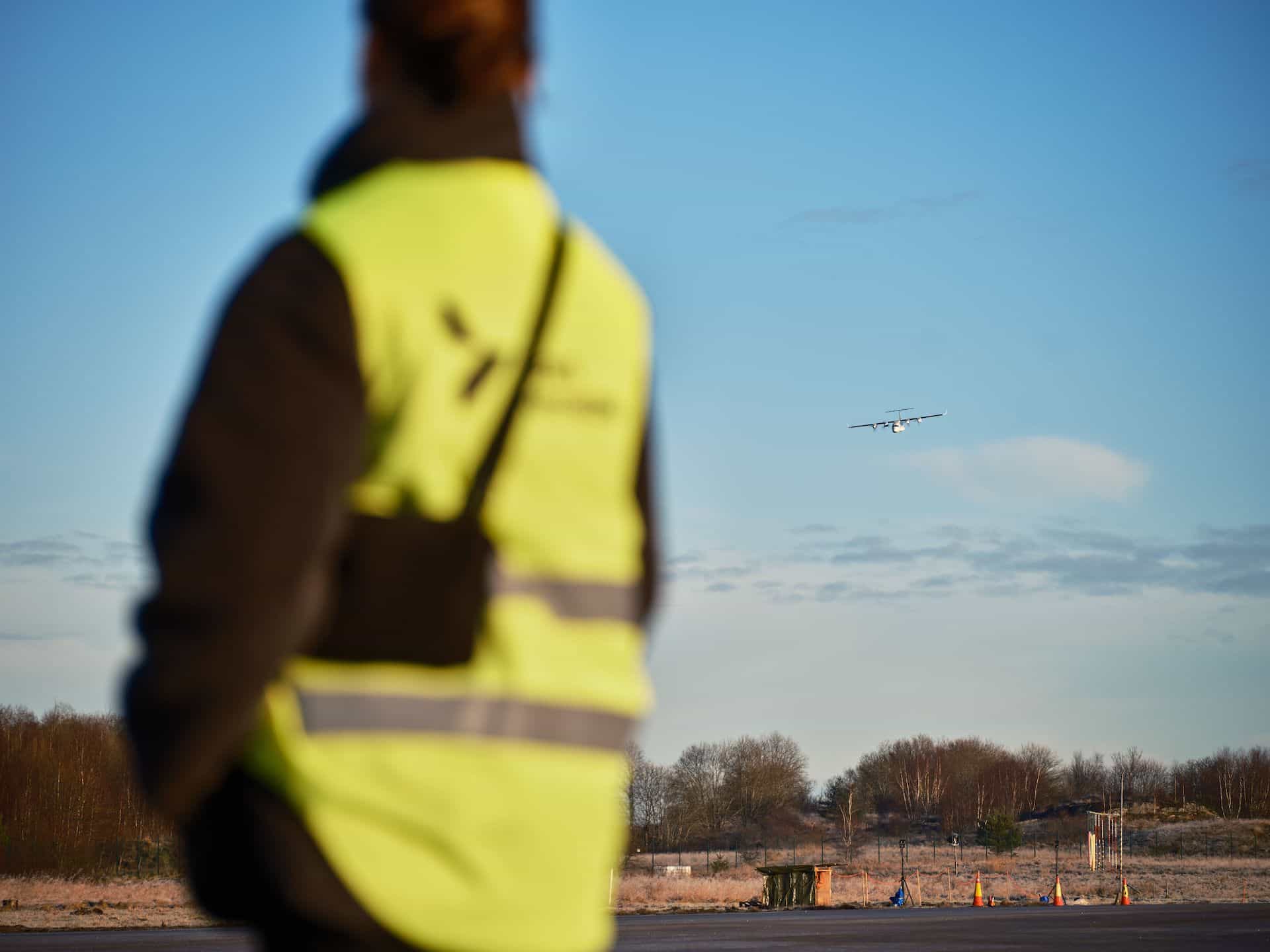
There are hundreds of airports in Sweden. It is not impossible to imagine small planes landing on everything from motorways to arable land, which opens up many new opportunities for future transport.
"The great thing about our product is that it is a natural bridge between today's infrastructure and the future. We begin with existing flight routes and existing airports. Getting the ball rolling is difficult, but our goal is to have electrified all air travel that is shorter than 130 km by 2050", says Anders Forslund.
Author: Anders Frick.
If you become a Warp Premium Supporter, you will be invited to an online meeting with Heart Aerospace's CEO, Anders Forslund, and visit their hangar.
Right now, we have a special offer: One-year Premium Supporter for $25 for the first year. (Renews annually at regular price of $100/year.)
The offer is valid until 6 February.
👇 Read about more people who want to create a positive impact.
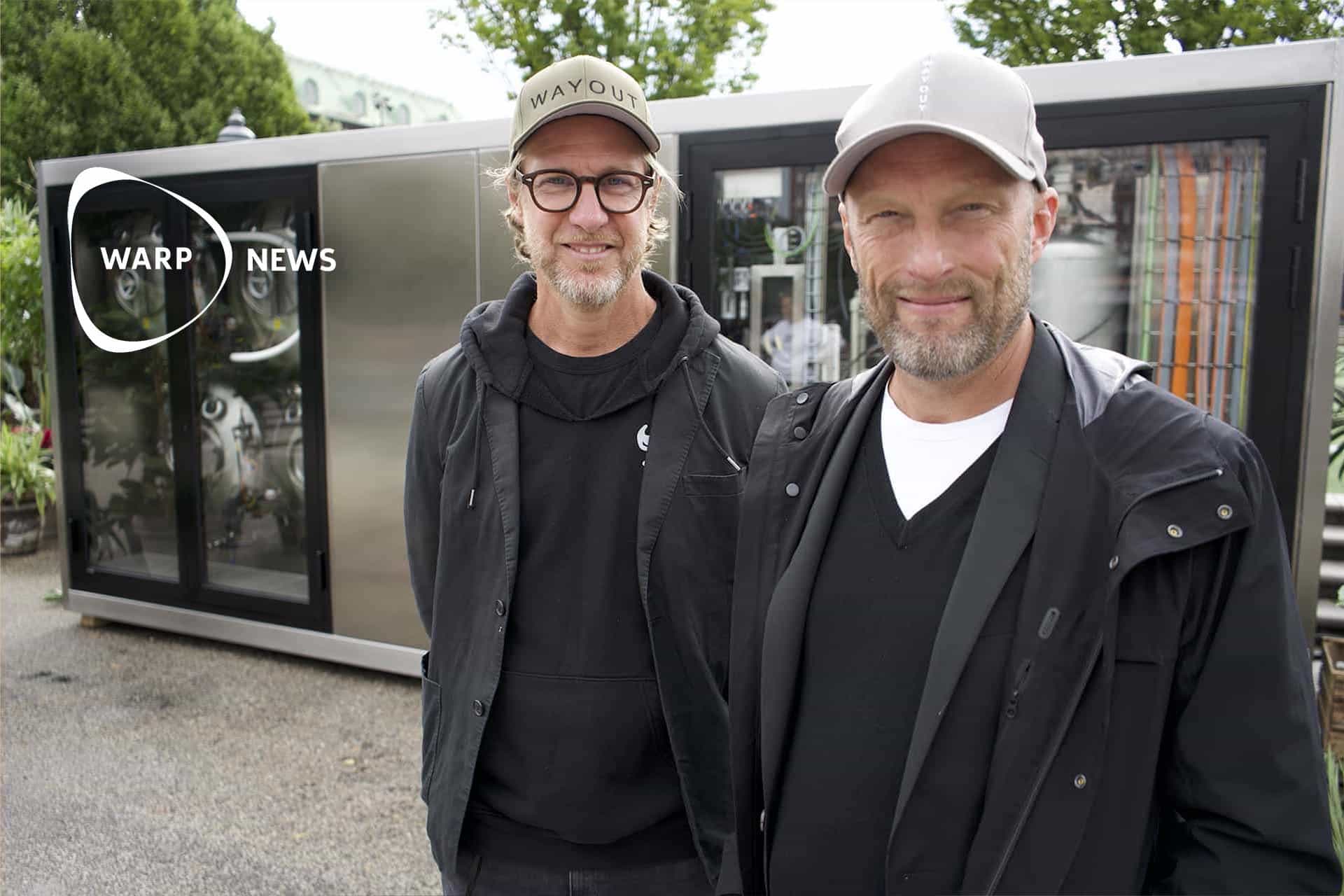
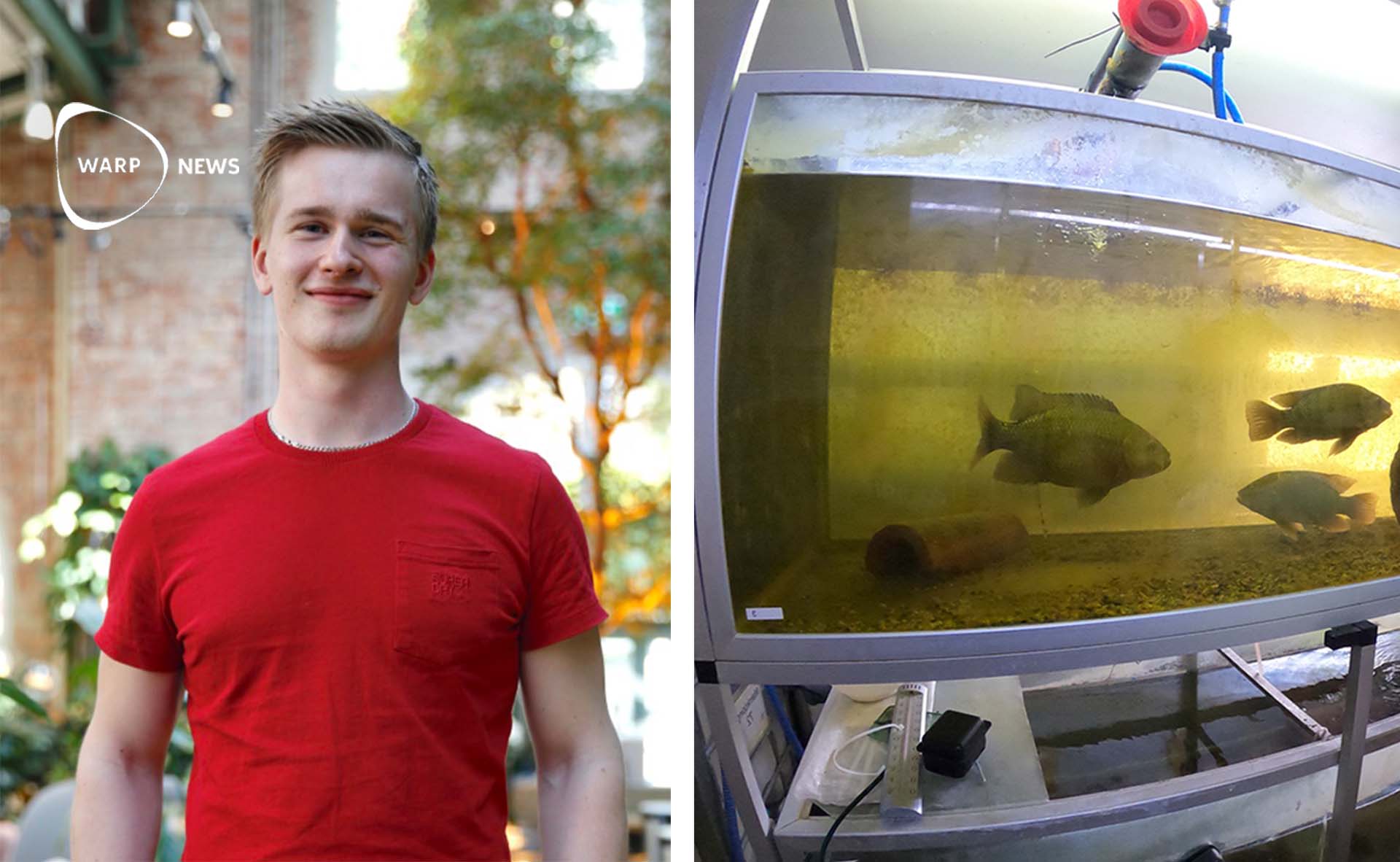
By becoming a premium supporter, you help in the creation and sharing of fact-based optimistic news all over the world.



